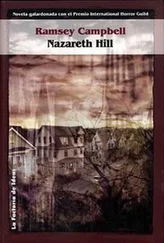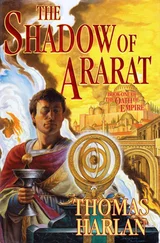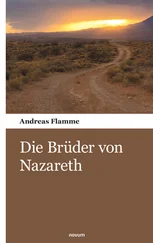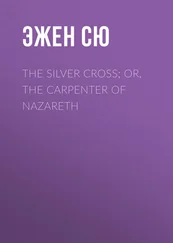“Oh, it’s only you, Haissem,” he said, frowning. “We were expecting Mr. Bowles… Well, here we are anyway. Haissem, this is Brek Cuttler, the newest lawyer on my staff. Brek, this is Haissem, the most senior presenter in all of Shemaya. I must say, Haissem, she’s arrived not a moment too soon. We just lost Jared Schrieberg and now, it seems from your appearance, Mr. Bowles as well.”
Haissem reached out to greet me with his left hand-a perceptive gesture, as most people reached by instinct for my right hand and were embarrassed to come up with an empty sleeve.
“Welcome to the Urartu Chamber, Brek,” he said, bowing politely, his voice high and prepubescent. “I remember sitting here to witness my first presentation. Abel presented the difficult case of his brother, Cain. That was long before your time though, Luas.”
“Quite,” Luas agreed.
“Not much has changed since then,” Haissem sighed. “Luas keeps the docket moving even though the number of cases increases. We’re fortunate to have you, Brek, and you’re fortunate to have somebody like Luas as your mentor. There’s no better presenter in all of Shemaya.”
“Present company excepted,” Luas said.
“Not at all,” said Haissem. “I only handle the easy cases.”
“Few would consider Socrates and Judas to have been easy cases,” Luas replied. “I’m just a clerk.”
Haissem winked at me. “Don’t let him fool you,” he said. “Without Luas, there would be no Shemaya.”
“Wait a minute,” I said, bewildered. “Cain and Abel? “Socrates and Judas? What are you talking about. What’s the joke?”
Luas turned to me impatiently. “Do you believe theirs were clear cases about which there could be no doubt?” he said.
“I, I guess not…” I said. “I really have no idea, but my point is that you couldn’t possibly have- Well, what happened to them, then? What was the verdict?”
Haissem patted Luas on the back. “I must enter my appearance and prepare myself,” he said. “I trust you’ll explain everything.” Haissem reached again for my left hand and, for an instant, his eyes seemed to focus on something inside me that was much larger than me. “We will meet again, Brek,” he said. “You’ll do well here, I’m certain of it.” He walked toward the chair at the center of the Chamber and Luas motioned for us to take our seats.
“We present only the facts,” he whispered as we sat down. “Our concern here is not with verdicts.”
“But if they were really put on trial, then surely you must know-”
“Nothing,” Luas interrupted. “We know nothing about the outcomes. The Chamber never speaks. One might speculate, of course. There are instances when a presenter feels the result should go one way more than another, but it is strictly forbidden. The consequences for a presenter who attempts to alter eternity last all of eternity. We must not seek to influence the result.”
I stared at him, trying to see through him, behind him, still unwilling to believe, still clinging to life as it used to be, searching for explanations for what was happening. “The surgery isn’t going well, is it doctor?” I said. You’re making me worse. I’m even more delusional.”
“Nonsense,” Luas said. “Look, Haissem has taken his seat. You’ll see things more clearly after he presents his case.”
Haissem sat on the chair at the center of the Chamber, adopting the same position as Luas, hands on knees, eyes closed, waiting. I kept my eyes open, watching. Suddenly, a powerful tremor rocked the triangular monolith, rippling its smooth surface. From the center of the monolith, from its solid core, emerged a being like the one on the animated sculpture in the hallway, human in shape and size but without hair, face, or features, dressed in a charcoal gray cassock. The creature approached Haissem without moving its limbs, buoyed, it seemed, on a cushion of air. Haissem maintained his position and the creature stood before him for a moment, then returned to its dark home without a sound. When the tremor subsided, Haissem rose from the chair and, standing at the exact center of the Chamber, raised his arms up from his sides in a broad arc. The energy of the walls and floor pulsed violently and surged toward him from all directions, seemingly compressing the space around him like an imploding star. The shock wave struck Haissem’s body, instantly vaporizing him, leaving behind in the vacuum only his voice, detonating like a great cosmic explosion: “I PRESENT TOBIAS WILLIAM BOWLES… HE HAS CHOSEN!”
The Chamber went dark. No light. No sound. No motion. Then the Chamber disappeared altogether.
I’m crossing a dirt road now, in another time and another place. My body feels heavy, tired, anxious; my face feels thick and rough, covered with whiskers and grime; my mouth tastes unfamiliar, like a first kiss. My arms, two of them now, feel powerful but detached, as though I am operating a machine. There is an aggressiveness I have never felt before, a heightened wariness of my surroundings and other people. My thoughts and reactions are accelerated and more analytical, my emotions and ability to comprehend subtleties, dull and unused. I reek with body odors that seem both comfortable and unpleasant. My head aches from a hangover.
I’m wearing a filthy green Army uniform and new black boots. This is my second pair of boots this month, which I know for a fact but don’t know why or how I know it. I know too that I can have as many boots as I want, that there are enough boots at my disposal to outfit two armies. They’re nice boots, shiny, black, and warm, but you can’t keep them clean here in Saverne. The dust takes the shine off as soon as you put them on, and there is nothing here but dust, darkening the sun and fading the colors. Everything is dust brown: the clothes, the tents, the once white requisition forms; in Saverne, the food tastes brown, the water washes brown, the stars sparkle brown, the air smells brown, and, when the dead arrive at the morgue here, they bleed brown onto the brown ground, ashes to ashes, brown to brown. I even dream in brown. The only thing not brown in Saverne is greed, which tints the eyes and fingertips a vibrant glossy hue of green.
Crossing the brown dirt road, I’m debating in my own mind whether to low-ball Collins or give him a fair offer and make him think I’m doing him a favor; but when I reach the middle of the dirt road, somebody yells: “Toby, lookout!”
From the corner of my eye, I see an olive green Army truck racing toward me at breakneck speed, plowing a tantrum of brown dust into the air. The dust looks startled for a moment, as if it has just been awakened from a nap. I leap out of the way, spinning a pirouette in my new black boots and giving Davidson a thank you slug in the shoulder for the warning. “You gotta be more careful, Toby,” he says. “You’re gonna get yourself killed.”
“Me, killed? No way,” I tell him. “Not by no goddamned truck anyway. It’ll take a French maid to do me in.”
Davidson guards the entrance to a brown tent that was once olive green. Dirt blown from the road piles into drifts against the canvas, re-creating in miniature the blowing and drifting snow in the mountain passes to the south that make the Alps impenetrable at this time of year. Early winter cuts crisp and cold over the peaks and down into the French valleys, pruning the wounded and the diseased from the battlefield and encampments, the villages and cities. A mountaineer lucky enough to reach the summit of the Alps would see war on the horizon in all directions.
The tent is warmed by a well-stocked wood stove and insulated with boxes of medical supplies stacked from floor to ceiling with dusty red crosses painted on their sides. Each box is worth two hundred dollars on the black market, making the tent into a bank vault. They form an aisle through to a desk at the center and a kerosene lantern producing a thin drizzle of light; behind the desk sits a lean, powerful looking black man. His left chest bears the name Collins, and his shoulder the stripes of a corporal. We are of equal rank. He crushes the cigarette he’s been smoking and lights another without offering me one. The white smoke from his cigarette fears the dust and latches onto his head and neck like a small child among strangers.
Читать дальше












